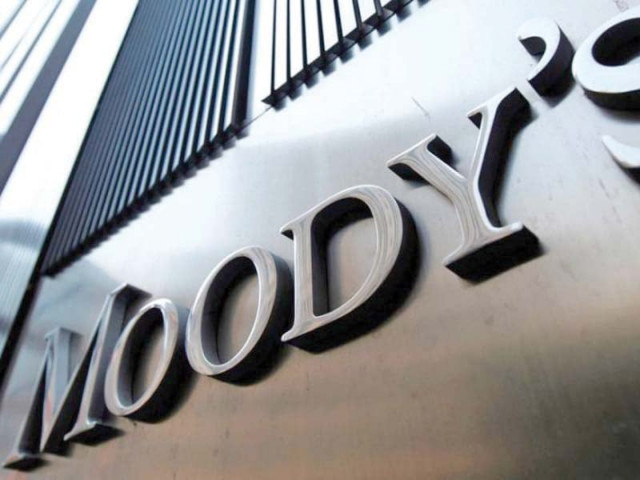Moody’s reaffirms Pakistan’s ‘stable outlook’
Global agency maintains country’s B3 credit rating after concluding downgrade review

Moody's Investors Service – one of the world’s top three credit rating agencies – on Saturday reaffirmed Pakistan’s stable outlook, meaning it is capable of paying back its foreign debt, after placing the country under review for downgrade amid the coronavirus pandemic in May this year.
After concluding its three-month long consideration, the agency maintained the country’s.B3 credit rating.
"The government's commitment to its current International Monetary Fund [IMF] Extended Fund Facility [EFF] continues to unlock a large financial envelope that Moody's expects will cover its external financing needs over the next 12-18 months, and provides an anchor for ongoing fiscal reforms," the agency said in its paper on 'Rating Action: Moody's confirms Pakistan's rating at B3, outlook stable’.
Commenting on the development, the finance ministry on its official twitter handle wrote that it was an affirmation of the government's sound fiscal and financial policies in these times of unprecedented hardship and uncertainty, particularly in the wake of Covid-19 outbreak.
Moody’s had initiated the review for downgrade on May 14 this year on apprehension that Pakistan might default on paying off debt owed to the global private sector creditors due to its increasing financial need to support people and businesses under the lockdown.
The agency initiated the review following Islamabad decision to avail the G20 member countries' offer for the deferment of government-to-government debt repayment worth around $2 billion till December 2020. G20 had made the offer to multiple countries.
Otherwise, Pakistan has successfully paid back short-to-long term foreign debt worth billions of dollars to both the governments and the private sector without any hindrance since Covid-19 outbreak in February in the country and not incurred a single default.
The country's foreign currency reserves had sharply shrunk $1.71 billion to $10.36 billion in last week of May mostly due to the debt repayments, but improved back to four-month high at $12.54 billion in the last week of July, according to latest update by the State Bank of Pakistan (SBP).
The IMF, World Bank, Asian Development Bank (ADB), Asian Infrastructure Investment Bank (AIIB) and China have extended fresh financing worth billions of dollars since the pandemic emerged.
Moody's said it had confirmed the Pakistani government’s 'B3' local and foreign currency issuer and senior unsecured debt ratings with a stable outlook.
Concurrently, it has also confirmed the 'B3' foreign currency senior unsecured ratings for The Third Pakistan International Sukuk Co Ltd. The associated payment obligations are, in Moody's view, direct obligations of the Pakistani government. "This concludes the review for downgrade initiated on May 14, 2020," the agency said.
"While Moody's continues to believe that the ongoing implementation of DSSI [debt service suspension initiative] poses risks to private creditors, the decision to conclude the review and confirm the rating reflects Moody's assessment that, at this stage, for Pakistan, those risks are adequately reflected in the current B3 rating."
The agency noted that governments having accepted G20 offer for debt payment deferment till December including Pakistan had continued to assert that they did not wish to engage with private sector creditors.
“A number of DSSI-participating governments have continued to make interest and coupon payments to private creditors as they fall due," it added.
"Should the probability of default and losses to private sector creditors increase as implementation of DSSI for Pakistan becomes clearer, Moody's would reflect any related changes in risks to private creditors in further rating announcements."
Economic outlook
Moody's expects Pakistan's economic growth to be positive in fiscal 2021 (ending June 2021) from a recession (GDP shrank 0.38%) in fiscal 2020, but still low at around 1-2%. While Pakistan's economy is relatively closed with low reliance on exports, movement restrictions due to coronavirus will keep economic activity below the pre-outbreak levels for some time, the agency said.
The slow economic recovery will in turn weigh on government revenue, keeping the fiscal deficit wide at around 8-8.5% of GDP in fiscal 2021 under Moody's projections, at similar levels compared to fiscal 2020, and leaving the government's debt burden high at around 90% of GDP by the end of fiscal 2021.
External financing needs have declined relative to fiscal 2018-19 because of a narrower current account deficit, which occurred as a result of the macroeconomic adjustments over the past two years and continues to be supported by effective policies including currency flexibility. "Moody's projects the current account deficit to be around 2% of GDP in fiscal 2021, after 1.1% in fiscal 2020, substantially narrower than the average of around 5.5% over fiscal 2018-19."
Stability in the balance of payments will, in turn, allow the SBP to keep monetary policy accommodative as inflation declines. This keeps a lid on borrowing costs for the government domestically and lends further support to debt affordability.



















COMMENTS
Comments are moderated and generally will be posted if they are on-topic and not abusive.
For more information, please see our Comments FAQ